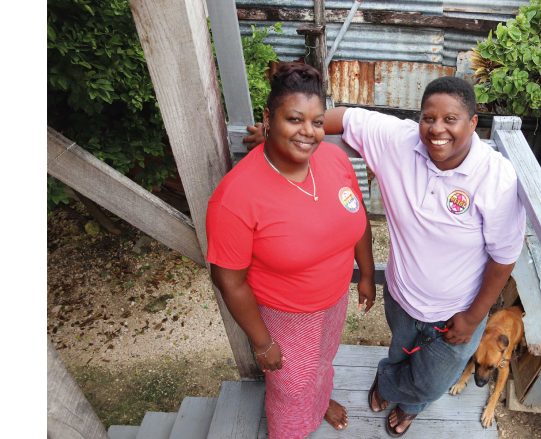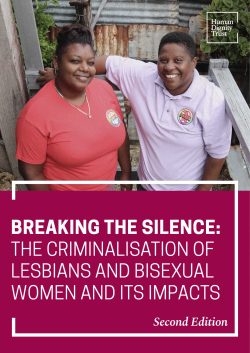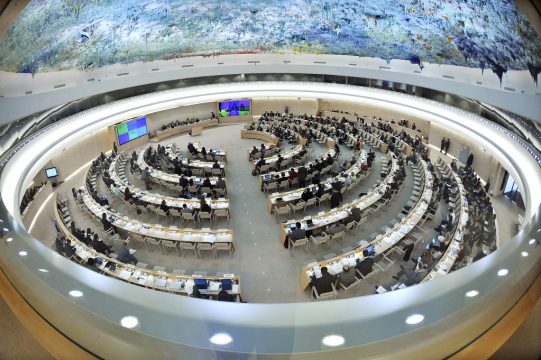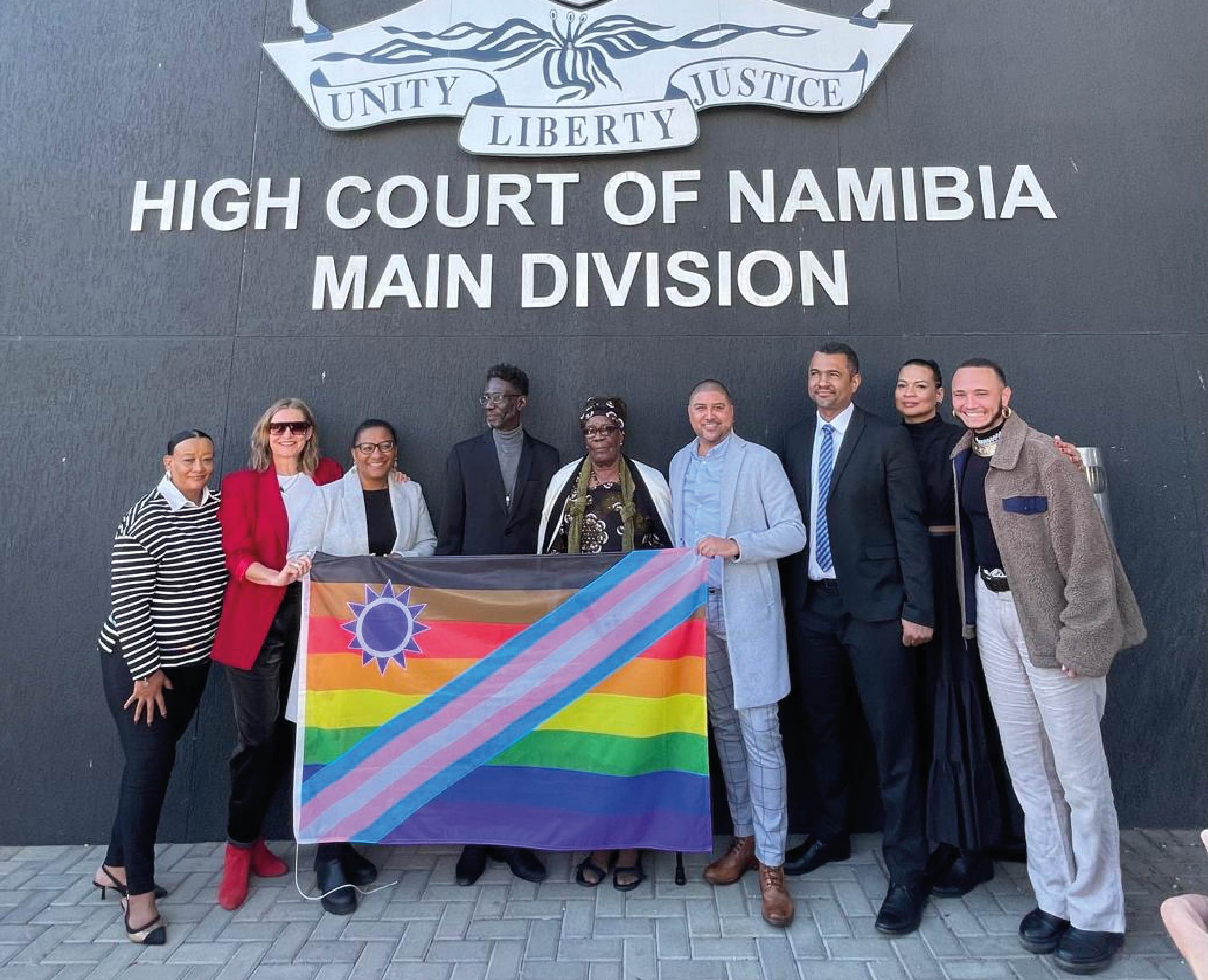A new report published today by the Human Dignity Trust, says that same-sex, sexual activity between women is still criminalised in one in five countries around the world.
Their criminalisation is often compounded by additional laws that have an exaggerated impact on women and girls, such as legislation criminalising adultery, abortion and sex-work, and laws that permit forced marriage and rape within marriage.
Breaking the Silence: Criminalisation of Lesbians and Bisexual Women and its Impacts, is the second edition of an original report published in 2016 and finds that lesbians and bisexual women are particularly vulnerable to certain kinds of human rights abuses, due to the intersection of their gender and sexual orientation.
The report stresses that all efforts to address LGBT persecution must cater for the specific needs of lesbians and bisexual women, and, in countries where same-sex acts are criminalised, decriminalisation is an urgent and crucial step towards their protection.
Decriminalisation is deeply important for lesbians and bisexual women, not only in those countries where they are or may be captured by the criminal law, but also because the maintenance of any form of anti-LGBT laws fosters and perpetuates generalised homophobia and sexism, harming the entire LGBT community.
‘I welcome this second edition of Breaking the Silence. Activism on LGBT criminalisation often misses the specific challenges faced by lesbians and bisexual women, and this report highlights the necessity for targeted legal and political responses that address their unique needs,’ said Rosanna Flamer-Caldera, founder and Executive Director of EQUAL GROUND, a Sri Lankan LGBT human rights organisation.
63 jurisdictions worldwide criminalise same-sex intimacy, and of these, 41 criminalise consensual intimacy between women. Several countries have repealed laws that criminalised sexual activity between women since the first edition of this report was published, including Trinidad and Tobago in 2018, Bhutan in 2021, Antigua and Barbuda in 2022, Barbados in 2022 and Dominica in 2024. Worryingly however, in the same period, two countries have introduced new laws criminalising same-sex sexual activity between women – Chad in 2017 and Brunei in 2019.
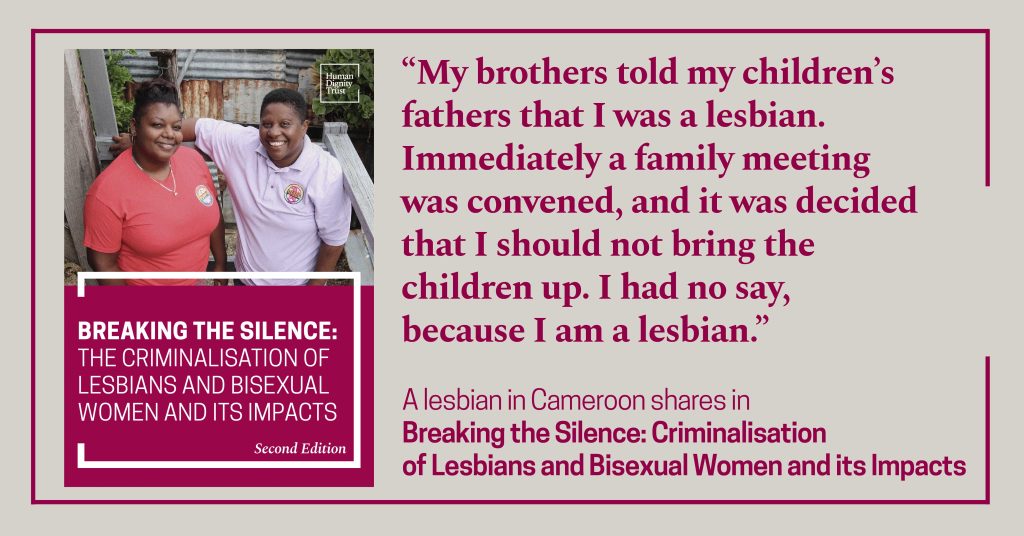
‘While encouraging progress has been made, legal interventions to achieve decriminalisation still need to better integrate and reflect the overlapping and differential impact of these criminal laws on lesbians and bisexual women, who experience extreme marginalisation in society,’ added Ariane Adam. ‘This will help strengthen the legal and judicial discourse by better highlighting the many ways in which criminalisation creates a breeding ground for multiple human rights abuses, which in turn cause families, societies and nations unnecessary division, anguish and suffering.’
Notes to editors
- Breaking the Silence: Criminalisation of Lesbians and Bisexual Women and its Impacts is now available for download on the Resources section of the Human Dignity Trust’s website.
- Visit the Human Dignity Trust’s interactive map to see which countries across the world continue to criminalise lesbians and bisexual women.
- The Human Dignity Trust works with LGBT activists around the world to defend human rights in countries where private, consensual, same-sex sexual activity is criminalised. We provide free technical legal assistance to local organisations that are challenging laws that persecute people on the basis of their sexual orientation and/or gender identity.
- Rosanna Flamer-Caldera was the complainant in the groundbreaking 2022 case before the UN CEDAW committee, which found that the criminalisation of consensual, same-sex intimacy between women violates the UN Convention on the Elimination of All Forms of Discrimination against Women. This decision sent an important message that any country which claims to respect women’s rights must respect the rights of all women, whatever their sexual orientation.
For more information, contact:
Nafisa D, Communications Officer, Human Dignity Trust
E: [email protected] / X: @HumanDignityT / W: www.humandignitytrust.org

